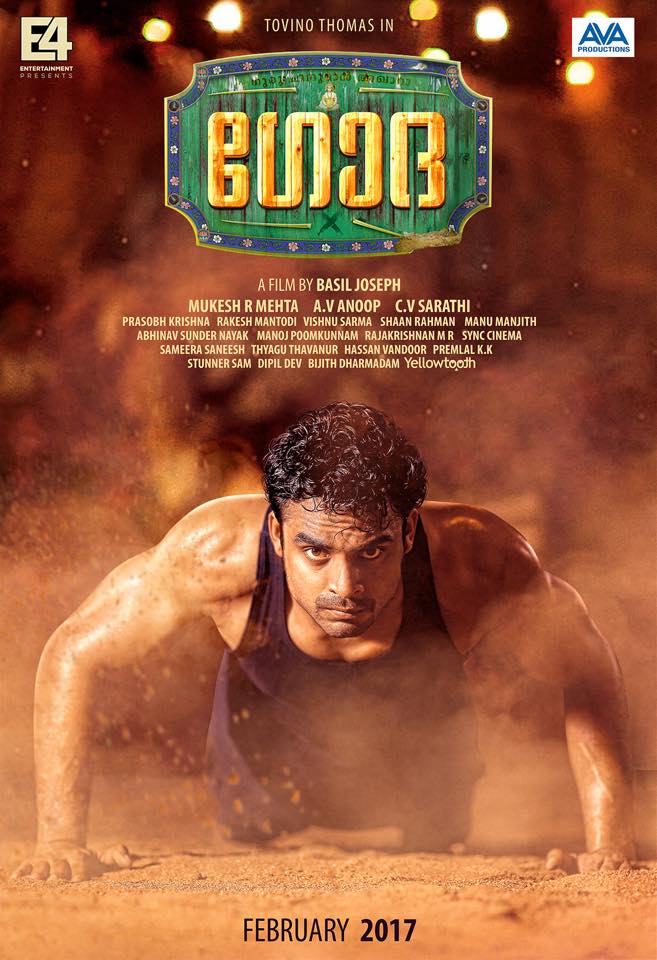
Fame’, writes American author Erica Jong, 'simply means millions of people have the wrong idea of who you are.’
This is exactly what I thought of actor Tovino Thomas until I had a conversation with him for over 45 minutes.
Based on the performances for which Tovino made a name, one could be forgiven for expecting an entirely different man: the charming villain in ABCD, the lovable Perumparambil Appu in Ennu Ninte Moideen and the serious Engineer Thejus Varkey in Guppy.
In truth, Tovino is all of these things and none of them. And that, of course, is his secret. “Tovino is an enigma,” said a friend of mine who had interviewed him once. “There’s some kind of magic about him.”
In less than five years, Tovino has acted in over 12 films but shot to fame in Ennu Ninte Moideen that also featured acting sensation, Prithviraj. At 27, Tovino is smart enough to know that his approachability on-screen, combined with a sense of nuance and depth, has lent his performances a likeable, everyman-ish quality that has proved to be box-office catnip. “I don’t do a lot of homework before doing a film. I do observe people and it (acting) just happens,” he admits.
For Tovino, acting did not come by chance. He worked towards that goal, struggled during his initial days and climbed his way up. “You know I was working in a software company before I made a career in films. But films didn’t happen overnight. I had this passion since a very young age. The world of cinema and everything that came with it always inspired me. It was not easy at first.
**media[564401]**
“For a newcomer, making a career in Malayalam film industry is not easy. While I was working in a corporate company, I worked towards my goal. Some people said I was not suitable for the industry, while I was also rejected at numerous auditions but I didn’t lose hope because I had that self-belief. I knew someday I would become an actor. That’s when Martin Prakat (director) came into my life like an angel and then ABCD happened. The rest, as you know, is history,” he says with a smile.
To some people in the industry, he is the Aamir Khan of South India for his commitment in portraying characters with distinctive looks. “I have heard of actors doing months of preparations before the start of a film but honestly, I don’t do that. I study the character well before standing in front of the camera. That is more important,” he said.
His role in Ennu Ninte Moideen changed his destiny forever and for someone who gave up his career for films, it was a moment that he will cherish for the rest of his life.
“I never got so many phone calls from people ever in my life. Everyone was calling. That’s when I realised that I am here to stay,” he says.
His entry into films shocked his parents but his wife Lidiya wanted to see him as an actor. “Every parent wants to see their children happy. They thought there was no security in films and there was no guarantee that I could make a fortune out of films and that was when I left my job to pursue a career in films. But they never discouraged me.
“Lidiya and I shared a long relationship before we got married. She is my strength and motivates me. She always wanted to see me as an actor,” he says.
It’s nice, talking to Tovino. Unlike many actors, he answers questions with a reflective openness. There is a feeling that nothing is out of bounds. He has a sharp sense of humour. When I ask, in the middle of a discussion about directors, whether he would ever consider directing a film, he replies deadpan: “Sure, if the right thing came along.”
He says that when picking projects, he is entirely guided by the quality of the script: “That’s all that matters in a film. A mediocre script will ruin a great piece of material.”
How does he choose a film? “It’s quite difficult. If there is a role that convinces me, I will go for it, irrespective of the success of the film. Nobody has the power to judge the outcome of a film before he signs it.”
His recent release, Guppy, failed at the box-office but won critical acclaim. “You know how much hard work went into the making of that film but many people missed watching it in theatres. The feedback after we released the DVD was overwhelming but that’s part and parcel of this industry,” he says.
His next two releases, about a wrestler in Godha and a campus leader in Oru Mexican Apaaratha, could once again put him in the top league.
“You know I’ve been lucky to have achieved a lot of the things that I dreamt of achieving as a young man. I am really thankful to all those who stood by me.”
How would he describe himself as an actor? There is a long pause. “I don’t know,” he says. “That’s for the audience to decide. But all I want to tell them is to please judge me by my performance and not by the success of my films,” he concludes.